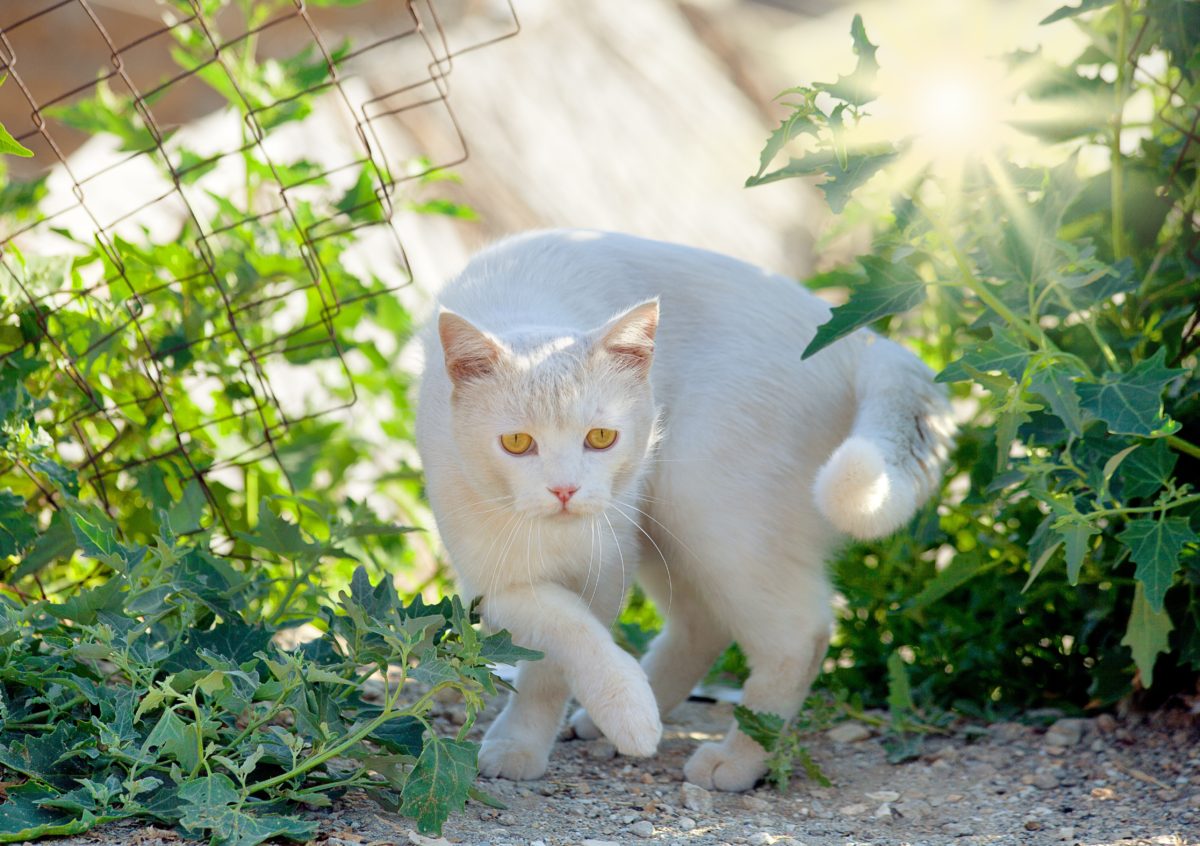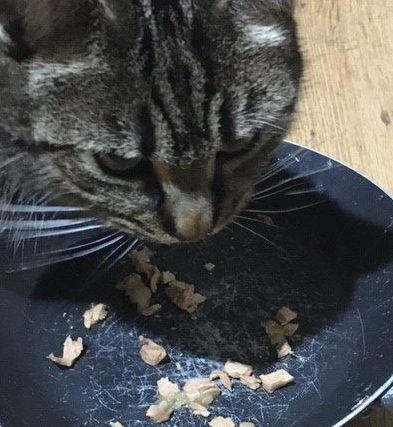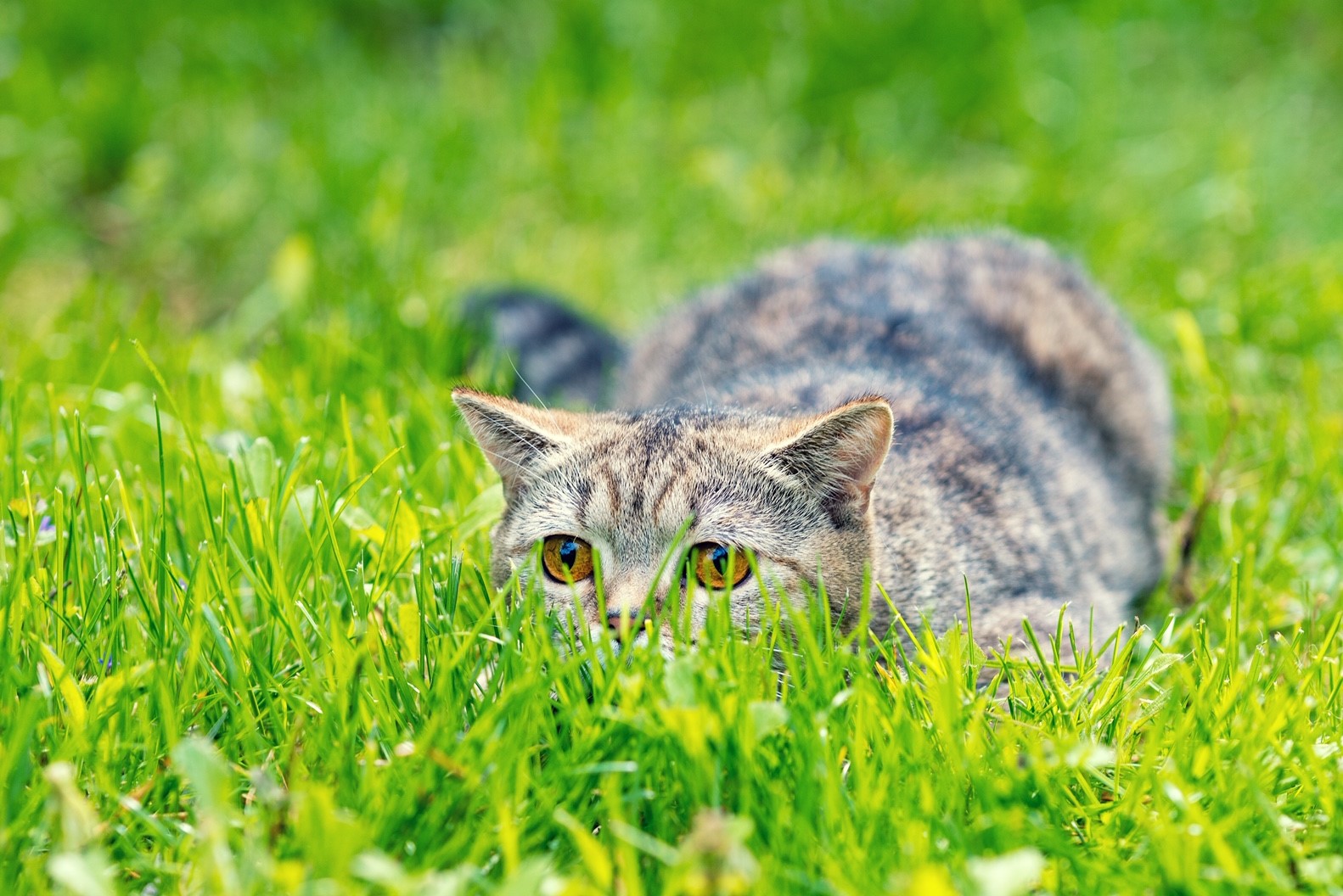
Does my cat need sunscreen?
Whilst we are all frantically applying sunscreen on ourselves, and our children, in this glorious hot weather, it raises the question of whether we need to apply sunscreen on our cats too? We are all aware of the potential danger to human skin from over exposure to harmful UV rays and awareness needs to be made that pets too can suffer sunburn from too much time in the sun. The sun emits both UVA (long wave ultraviolet A) and UVB (short wave ultraviolet B) – UVB rays cause sunburn and UVA rays can lead to skin cancer.
Which cats are at risk to sunburn?

Light coloured cats, in particular white cats, are most at risk of sunburn. The areas of their bodies without hair – ears, nose, eyelids and lips – are the areas which need most protection. These areas have no, or very little hair, to protect the skin, and no melanin. Melanin is the pigment in our skin and hair that is responsible for protecting skin cells from UVB radiation damage thus reducing the risk of skin cancer. Although all cats, to some degree, are at risk – white and light cats are particularly higher risk and need protection from the sun’s rays.
How do I choose the correct sunscreen for my cat?
Cats groom themselves very often, in fact, cats help themselves to cool down when the weather is extra-warm by dampening their fur with saliva. If a foreign substance such as sun cream is placed on their bodies they will try to remove the substance by grooming therefore cats are highly likely to ingest products when applied to their skin. There are two substances in most sun blocks that are toxic to cats:
- Octyl Salicylate – poisonous to cats
- Zinc oxide – can cause stomach problems
Most pet sun creams are advertised as specific to dogs and horses therefore if the sunscreen is not specified as being safe for cats too, many vets suggest using a sunblock that is safe for babies and use very sparingly on the most vulnerable areas such as the ears.
Whichever product you choose, ensure you test on a small area first to ensure your cat doesn’t have an adverse reaction to the sunscreen. If they have a reaction, wash the cream off immediately and if you have any concerns contact your vet without hesitation for further advice and guidance.
Alternative sun protection methods
The best protection is to keep out of the sun, especially during the peak times between 10a.m. and 2p.m. If your cat spends most of his time outdoors, ensure there is plenty of shade available, for examples a beach umbrella or an upturned crate or a cover over a bench.
Remember that indoor cats are also at risk if they enjoy basking in the indoors by a window. An UV blocking window film can be applied to the window to reduce exposure.
Symptoms of Sunburn in cats
- Redness of the skin in exposed areas (ears, nose etc)
- Itching and scratching of the burned areas
- Pain in the burned areas
- Skin looks thickened and scaly
- Hair loss
- Continued exposure to the sun would cause the condition to progressively worsen
If you think you cat has sunburn or have any concerns do not hesitate to contact your vet who can diagnose if sunburn is the problem and advise on treatment. More serious forms of sunburn may require your cat to be admitted for treatment, which is much more involved than the care a cat owner can provide at home.
Treatment of Sunburn in Cats
Treatment will depend on the severity of the sunburn and can include topical or oral steroids to relieve the skin inflammation. Antibiotics may be required if the burn and scratched-up areas have become infected. There may be continued after care required at home.
At home, the following can help to ease the discomfort of sunburn;
- Gentle mists of cool water
- Limit exposure to the intense afternoon sun
- Close curtains, pull blinds down during the peak times
Prevention is always better than cure and repeated episodes of sunburn can lead to skin cancer. ‘Squamous Cell Carcinoma’ is a kind of skin cancer that is predominant in areas of the skin where there isn’t much, or any, hair. Skin cancer is a painful condition which may involve removal of your cats ear, freezing their nose and if not diagnosed in it’s early stages, it can prove fatal.
For more tips and advice on how to keep your cat cool and safe in the summer heat please see our article ‘Can you give your cat a popsicle? And how to keep your cat cool in the summer’




